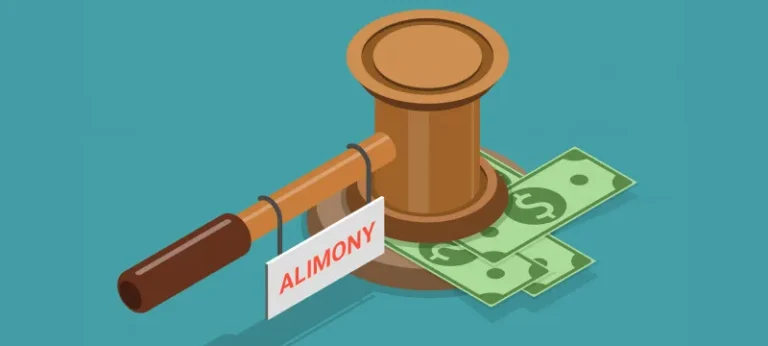Alimony In Colorado
After a divorce, alimony, or “maintenance,” as it’s known in Colorado, ensures that a disadvantaged spouse’s basic financial needs are met. It’s usually only implemented if there’s no other viable option for meeting the assistance needs.

Many of our customers believe that alimony is only for the ex-support. This isn’t correct. The belief that a maintenance award is required or automatic after a specific length of the marriage is also incorrect. Alimony can be requested by either party in the case, and there is no automatic right to receive an award.This article will explain to you about the alimony in Colorado.
Spousal Support In Colorado
Several types of alimony in Colorado are recognised by Colorado courts during and after a divorce, including:
- Temporary
- Rehabilitative
- Reimbursement
- Permanent.
Temporary support, often known as “pendente lite support,” is monetary assistance provided by one spouse to the other throughout the divorce process. The court understands that when couples separate, they often stop sharing their incomes.
If one spouse was the family’s principal earner, sharing incomes during a divorce could be disastrous for the other. The seeking spouse might ask the court to compel the other spouse to assist financially until the divorce is finalised.
The most common type of maintenance in Colorado is rehabilitative support (and in most other states.) The goal of rehabilitative support is for the higher-earning spouse to provide financial assistance to the lower-earning spouse while the latter obtains necessary job skills or career training in order to enter the workforce and eventually become self-sufficient.
In marriages where one partner left a career to raise a family, rehabilitative support is prevalent. The court will normally order rehabilitative support for a set amount of time, which is usually long enough for the beneficiary to learn the skills needed to find work and become financially self-sufficient.
Reimbursement support is for circumstances in which one spouse paid for the education or work training of the other spouse during the marriage. When a pair is married, both spouses gain from advancements in training; however, only the person who received the training will benefit after a divorce. If the court deems it necessary, the beneficiary of the funds will be required to reimburse the other spouse through spousal maintenance payments.
Permanent support is now reserved for the most extreme divorce instances, when one spouse is unable to become financially self-sufficient due to advanced age, disease, or disability, or if one spouse is unable to develop employment skills to become self-sufficient. Permanent alimony might last eternally, although this is uncommon. The court will usually designate an end date for the assistance.
Eligibility and Amount of Spousal Support in Colorado
It’s a prevalent misperception that spousal maintenance is solely available to women. The court’s only concern is that the support award is fair and equitable to both parties, that the asking spouse (either party) can demonstrate a need for support, and that the other spouse can afford to pay.
Spousal maintenance is usually only considered suitable in marriages that survive longer than three years. When evaluating spousal maintenance eligibility in Colorado, the court also examines the following factors:
- Financial resources of each spouse, including present and projected income from separate or marital property.
- The ability of the paying spouse to meet each spouse’s financial demands.
- The lifestyle of one of the spouses during the marriage.
- The division of property in a divorce.
- Both parties’ earnings, employment, and employability can be obtained with due diligence and additional training or education.
- Whether one party had previously earned more or less than the income shown at the time of the permanent orders and the duration and consistency of revenue from overtime or secondary work.
- The duration of the union.
- During the divorce process, the amount and length of interim support.
- Each spouse’s age and health, especially whether either has major health care needs or uninsured or unreimbursed health care expenses.
- Whether each spouse made a major contribution to the other’s professional, educational, or economic advancement.
- Any other reason deemed relevant by the court.
Following the court’s initial determination that assistance is justified, the judge must determine the quantity and duration of support.
Unlike other states, Colorado law provides judges with a formula for calculating child support. According to the formula, the lower earner receives a monthly payment equal to 40% of the higher earner’s monthly adjusted gross income minus 50% of the lower earner’s adjusted gross income.
Before applying the formula, the court will consider whether either party pays or receives child support or spousal maintenance for children or an ex-spouse from a previous marriage.
The maintenance award would be $3,000 ($4,000, which is 40% of $10,000 minus $1,000, which is 50% of $2,000) if the higher-earning spouse earns $10,000 per month and the lower-earning spouse earns $2,000 per month, and neither makes nor receives payments from another marriage.
Either spouse can ask for a variance from the formula if they believe it is unfair, and the judge who grants the request must explain why. Both spouses can agree to waive interim maintenance, but the agreement must state why the waiver is being made. If the judge believes the waiver agreement is highly unjust, the court may reject it.
Suppose the property partition award in the divorce fails to achieve an equitable result for the parties. In that case, the court can consider the aforementioned elements for marriages of less than three years.
Colorado Divorce Laws Alimony
The parameters of support, including the method and frequency of payments, can be agreed upon by the parties. If the couple cannot agree, the court will step in and make the decision. Periodic payments (typically monthly) are appropriate in most circumstances. The court will issue an income withholding order, instructing the paying spouse’s employer to deduct the award from the employee’s salary directly.
If the paying spouse has the financial wherewithal, the court may allow support to be paid in one single amount with property or cash. The advantage of a lump-sum payment is that there is no ongoing need to pay monthly support, and the recipient is not concerned about non-payment over time.
If the paying spouse fails to complete his or her maintenance responsibilities, the recipient might ask the court for help collecting payments. Non-payment of support is taken extremely seriously by the court, and failure to comply with the court order can result in fines, court appearances, loss of licences, bank accounts, tax return interceptions, and jail time.
Termination or Modification Spousal Support
A court can amend monthly payments owing to a major change in circumstances unless the couple has signed a written agreement not to pursue modifications in maintenance payments. Maintenance is usually terminated if the receiver remarries or if either party dies unless there is an agreement to the contrary.
Length Of Spousal Support Arrangement
If a judge determines that spousal support is appropriate in a divorce proceeding, he or she may make a temporary or permanent award to one of the parties. The use of temporary awards is becoming widespread. They do not last the recipient’s entire lifetime.
A temporary support order might endure if one spouse requested spousal maintenance throughout the divorce process until the divorce is finalised. In some situations, a court may also make a temporary order a part of the divorce decree.
Colorado has an extensive and exhaustive list of how long spousal support will last if the couple has been married for at least three years but less than twenty.
- 3 years: 31% for 11 months
- 5 years: 35% for 21 months
- 10 years: 45% for 54 months
- 15 years: 50% for 90 months
- 20 years: 50% for 120 months
These rules only apply if the couple’s combined income is less than $240,000. Otherwise, the length of the order will be calculated in months based on the length of the marriage. If a marriage has lasted more than 20 years, the courts have the authority to award spousal support for a set period of time or permanently.
The factors in the case will influence the judge’s decision. The Colorado law list of spousal support lengths for various marriage terms does not guarantee that the courts will make this type of award.
Spousal Maintenance and Taxes
Periodic maintenance payments are taxable to the recipient and tax-deductible to the payer in divorces finalised before December 31, 2018. However, the 2017 Tax Cuts and Jobs Act repealed the maintenance tax deduction and reporting obligations for any divorce finalised on or after January 1, 2019 under alimony in Colorado.
Faqs
Is there alimony in colorado?
Guidelines for Alimony in Colorado. After a divorce, alimony, or “maintenance,” as it’s known in Colorado, ensures that a disadvantaged spouse’s basic financial needs are met. It’s usually only implemented if there’s no other viable option for meeting the assistance needs.
What is alimony in colorado?
Alimony, or “spousal maintenance” in Colorado, is a payment made by a higher-earning spouse to the lower-earning spouse to ensure that the lower-earning spouse does not become impoverished during or after the divorce process.
How much is alimony in colorado?
In contrast to other states, Colorado law provides judges with a method for calculating child support. The formula calls for a monthly payment of 40% of the higher earner’s adjusted gross income minus 50% of the lower earner’s adjusted gross income to the lower earner.
Can a wife get spousal support in colorado?
Colorado does not, while several states have abolished lifelong alimony except for elderly or disabled spouses. A spouse can be given spousal maintenance for the rest of their life if their marriage has lasted longer than 20 years.
How is alimony determined in colorado?
If the wife does not work, the court will determine the amount of alimony based on her age, educational qualifications, and ability to work. If the husband is incapacitated and unable to work while the wife is working, the court will award the husband alimony.
How long does a man pay alimony in colorado?
The statute sets a limit of 50 per cent of the marriage’s specified maintenance terms. After 12 and a half years of marriage, the maintenance duration is reduced to half the length of the marriage. If you’ve been married for 20 years, you may be eligible to receive – or pay – alimony for a period of ten years.
Does alimony end when you remarry in Colorado?
Spousal maintenance is automatically terminated when the supported spouse remarries or dies in Colorado. Periodic maintenance, in particular, comes to an end when the supported spouse remarries or goes into a civil union.







